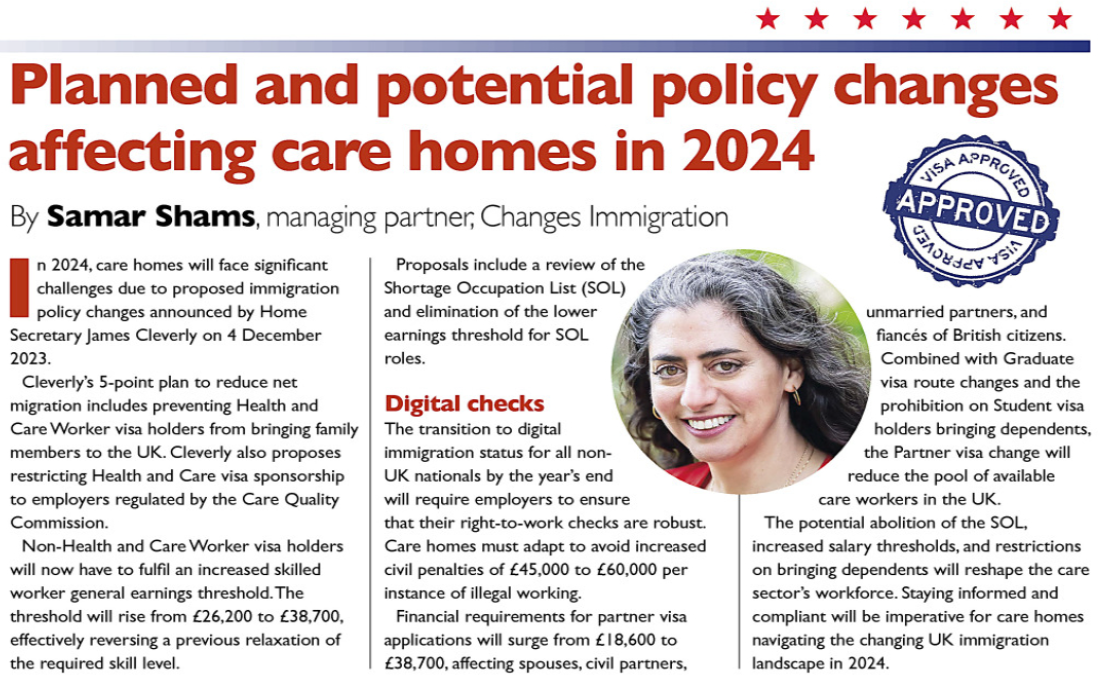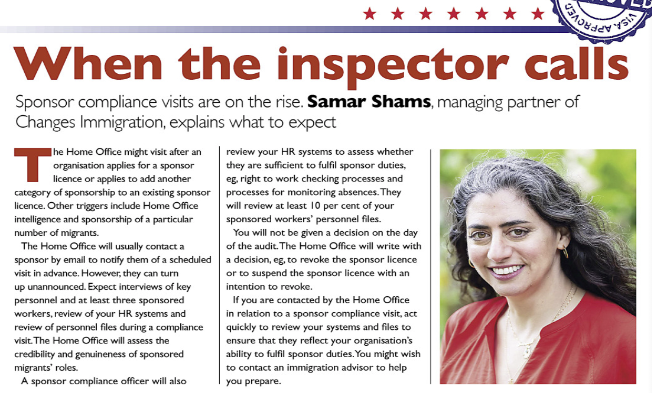The Shortage Occupation List (SOL) supplements the main work visa route, Skilled Worker, allowing for a reduced salary threshold and slightly reduced visa fees.
According to the Migration Advisory Committee (MAC)’s ‘Review of the Shortage Occupation List 2023’, the SOL does not address skills shortages in the UK. The MAC recommends eliminating the current SOL salary reduction allowances. The MAC also suggests making all occupations on a national pay scale ineligible for the SOL.
Is the SOL beneficial?
The main benefits of an occupation being on the SOL are a 20% discount on the going-rate minimum salary requirement specific to each role and a lower general salary threshold than the general salary threshold otherwise applicable to Skilled Worker roles. The SOL general salary threshold is £20,960 whilst the general salary threshold otherwise applicable to Skilled Worker roles is £26,200.
Visa fees are also lower for those working in a SOL job: depending on the applicant’s location and the visa duration, the visa application fee may be up to £416 less for a SOL role than a non-SOL role.
However, the MAC purports that allowing low-wage workers access to the Skilled Worker route results in the following dangers:
- Incurring net fiscal costs. The net fiscal impact of immigration is the difference between the tax and other contributions immigrants make to public finances and the costs of the benefits and public services they receive. It is argued that high-skilled migrants working in highly paid jobs contribute more on taxes than low-skilled migrants in low-wage jobs;
- Exploitation of migrants due to their immigration status; and
- Although the SOL application fees are slightly reduced, the administrative complexities and application expenses could surpass the financial means of low-wage employers.
The MAC has advised that if the government decides not to abolish the SOL completely, only a few low-wage occupations should remain on the list.
The 2020 Standard Occupation Classification (SOC)
The current SOL is based on the 2010 Standard Occupation Classification (SOC), due to data issues with the 2020 SOC. The MAC has requested the government to confirm by the end of January 2024 that it will move to the 2020 SOC and update the salary thresholds for the Skilled Worker route in the Spring 2024 Immigration Rules changes.
The MAC also recommends a minor review in Spring 2024, changing the name of the SOL to ‘Immigration Salary Discount List’ and confirming the transition to the 2020 SOC.
Creative Workers
The MAC recommends updating sponsorship requirements for the Creative Worker route by removing the reference to the SOL, removing the resident labour market testing requirement, and adding a minimum salary threshold for the route.
Asylum applicants
The MAC also suggests allowing asylum applicants to work in any role, not just in roles on the SOL.
Impact of the MAC’s recommendations
The Government has already adopted some of the MAC’s recommendations: The government announced a five-point plan on 4 December 2023 to cut net migration from Spring 2024. Key changes announced include the MAC’s ‘Review of the Shortage Occupation List 2023’ recommendation to end the 20% going-rate salary discount for shortage occupations. In the same five-point plan, the government proposed increasing the minimum salary threshold for Skilled Workers to £38,700.
The government’s proposed changes and the suggestions made by the MAC will affect many UK businesses. The most affected businesses will be those sponsoring talent for jobs paying less than £38,700 or jobs in shortage occupations. Employers might want to review existing recruitment strategies and sponsorship policies and precedents.
Contact Changes Immigration for detailed advice on adapting to immigration changes in 2024.
Publication Date: 12 January 2024









